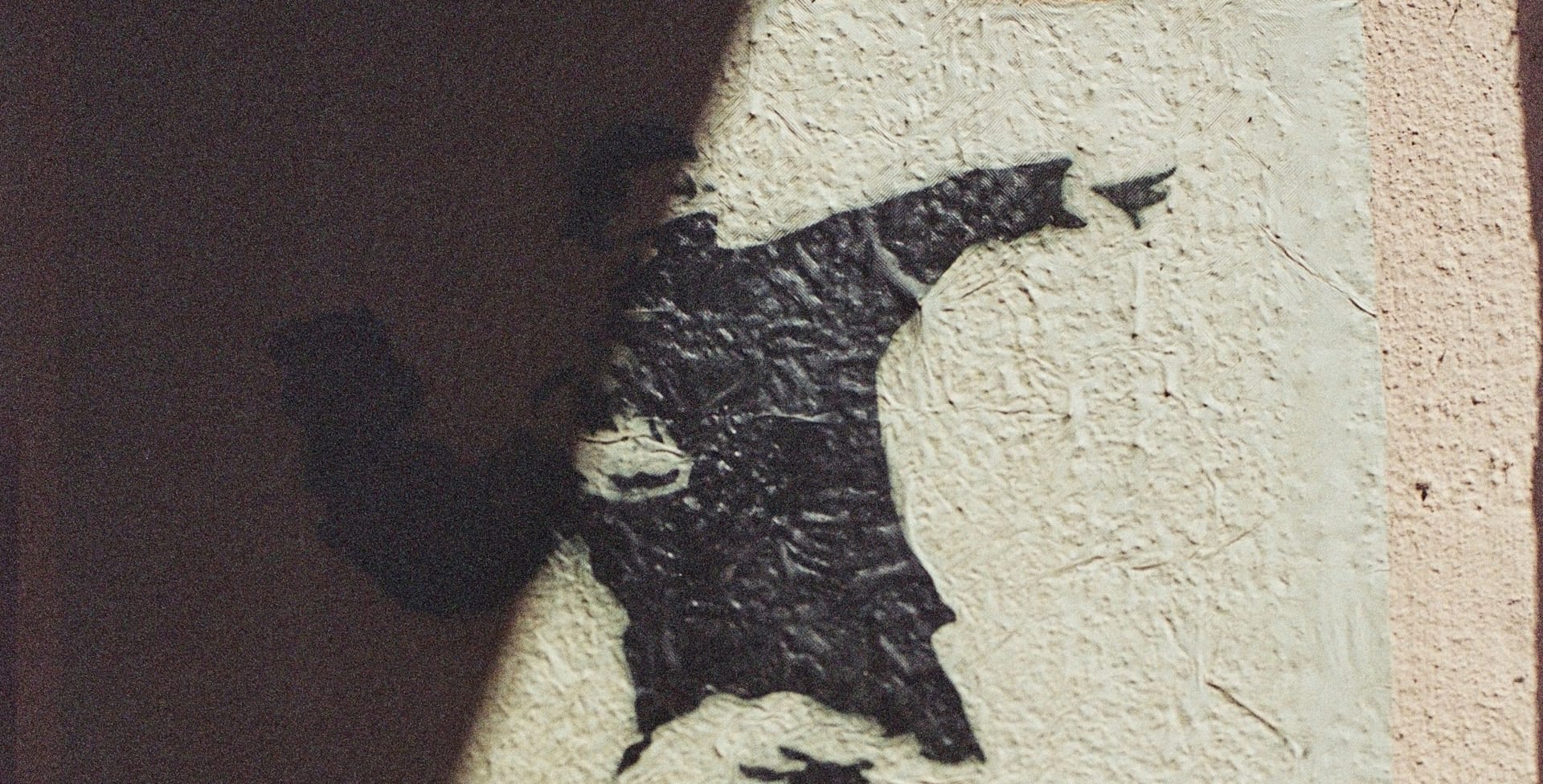Embracing Pleasure or Resistance? The struggle of navigating life in a time of crisis.
"I can't do all that anymore," I write in desperation. First in one private message, then in two, and eventually in more than five to my friends. Some responded with acknowledgment, some with advice, and some told me, "You can't change anything anyway. Try to enjoy life a little."
So I am struggling. How can I enjoy life while the world burns? While international community looks away as Israel starves Gaza? While floods, wildfires, and hurricanes are destroying our cities? While fascism is on the rise and democracies are eroding?
Yet a couple of hours later, I'm smiling - with a fun drink in one hand and a sweet treat in the other - performing my own little farce of normalcy. The tension between the urge to turn away from the world's horrors and the impulse to stare them down is our real dilemma. However, the feelings we experience during those fleeting moments of joy are not merely hypocrisy or distraction. They point to a deeper conflict at the heart of our age. On the one hand, we’re urged to “love ourselves” out of collective pain. On the other hand, we sense the call to solidarity, to shared struggle, and to changing the conditions that create this pain.
To understand how to navigate the swing between these poles, we need to move on from personal anecdotes to systematic diagnosis. That's why we will unpack how late-stage capitalism creates the illusion that individuals of the proletariat carry the burden of change, instead of the ruling class. Only by unmasking the political economy of our anxieties can we chart a path from “La Dolce Vita” toward a genuinely “Siamo Tutti” solidarity.
The Crisis of Meaning in Capitalist Society
How often have you heard that the answer to a crisis is that individuals must change their behavior. You have to ride a bicycle to work. You have to eat vegan. You have to sell your old car and go electric. While the power of individuals doing the right thing should not be understated, this pattern is precisely manufactured by the ruling class.
In the neoliberal present, political collapse has become a lifestyle problem. Burnout and depression are treated as mere branding glitches in one's self-image, rather than as symptoms of a sick system. Climate crisis gets reduced to a series of individual choices. Capitalism doesn't just exploit labor and resources; it also colonizes the psyche. The promise of a better world has mutated into the demand for constant self-optimization. Individual identity becomes a carefully managed project. Every aspect of life must adhere to the principle of productivity — otherwise, you are worthless. Many people, myself included, know firsthand how the mantra "I'm good for nothing" permeates every thought and eventually leads to depression or suicidal thoughts.
In his book Müdigkeitsgesellschaft, Byung-Chul Han claims that society has shifted from a society of obedience to one of performance, leading to individuals that exploit themselves voluntarily instead of by force. It's debatable, however if this is the actual result of free will or just the result of the fears that capitalist narratives unequivocally paint: if you are not productive, you're worthless. That train of thought is also the reason why only concepts like basic income or unemployment benefits can lead to a truly free society.
For me, these thoughts of worthlessness are exacerbated when reading about other people successfully fighting back. When I watch Greta Thunberg getting illegally kidnapped off a boat delivering humanitarian aid to Gaza, the sense of worthlessness inevitably creeps back in. They even lead to a kind of paralysis - preventing me from achieving the simplest of tasks.
This is also due to the omnipresent ideology that everyone can change their life if they have just the right mindset, if they just try hard enough. Not even batting an eye to thoughts about privileges, head starts or discrimination. Mark Fisher calls this principle "magical voluntarism" and argues that it is a kind of unofficial religion in current capitalist society. I couldn't agree more. Furthermore, he describes the root cause of magical voluntarism as a chicken-and-egg problem: "both an effect and a cause of the currently historically low level of class consciousness".
But how do we deal with this pressure that is forced upon us - to hustle, to self-optimize to be productive even in times of collapse?
"La Dolce Vita" - A Capitalist Band-Aid or the Meaning of Life?
To manage these internal struggles, capitalism conveniently offers its own set of solutions: journal your thoughts, practice mindfulness, build resilience, do some morning yoga. While those are valid tools to deal with the symptoms of the disease, they are merely tools to reintegrate you into the rat race.
The pathologization of mental suffering strips it of all political meaning. Depression becomes chemical imbalance, burnout a time management issue. Fisher argues correctly: "The pandemic of mental anguish [...] cannot be properly understood, or healed, if viewed as a private problem suffered by damaged individuals."
And yet, capitalism always presents a solution, even for our despair: from digital detox kits to subscriptions of mindfulness apps or the newest New Balance sneakers. Suffering becomes a monetizable experience. Not to mention drowning ones thoughts in alcohol, gaming or the next best reality show.
Another escape appears. Aperol Spritz on a luscious summer evening. A pistachio croissant in the streets of Paris. Hot shoyu ramen in Osaka. Matcha lattes and pilates. La dolce vita. Is this the actual point of living, or just deliberately designed escapism from the sufferings of capitalism? Are these pleasures truly enjoyed or just consumed in order to facilitate the commodification of our bodies?
This issue is so pressing, that it has even reached TikTok trends: Short clips showing the beauty of life are captioned "Almost forgot this was the whole point". I hope that this is an actual awakening and not the case of a "selfawarewolf" trend. Let me explain why.
Sabine Nuss, German author and political scientist, reminds us that "capitalism is the first form of society in which people must produce in order to have work, instead of working if they want to produce something. This leads us to ask ourselves: do we work in order to experience "La Dolce Vita" or do we abuse "La Dolce Vita" only to be able to get abused more ourselves?
Audre Lorde showed us how it can work: "caring for myself is not self-indulgence, it is self-preservation, and that is an act of political warfare". The point is not to reject pleasure, but to politicize it - just like we must politicize the crises that are pushed onto individuals while the ruling class escapes accountability. Thats what why I invest hope into a TikTok trend - as a path towards more consciousness.
Solutions through Re-politicization
Similarly to how Fischer makes out the historically low level of class consciousness as the main factor for mental suffering during crisis, in Scheiß auf Selflove, gib mir Klassenkampf, Jean-Philippe Kindler shows a road towards healing structural injustice: via organization, solidarity and class consciousness. He urges us to reclaim domains like poverty, climate or what it means to be left-wing as political battlegrounds, not as private duties. That means shifting the responsibility from an individual back onto politics - and onto the ruling class.
Kindler also calls for the re-politicization of the good life. La dolce vita. In order to rally people behind the cause, we have to paint and end goal, a vision of a better life.
That’s where Siamo Tutti comes in. “We all are.” Because we are all affected. And because liberation - from depression and burnout; from despair; from endless crisis - is only possible in unity. History speaks loud and clear: weekends were won by united labor, the eight-hour day by mass strikes, and women’s suffrage by relentless solidarity. And in order to not break in the process we have to self-preserve, perhaps with a fun drink and sweet treat in hand during a luscious summer night. What will you think about when enjoying your Aperol Spritz tonight?

